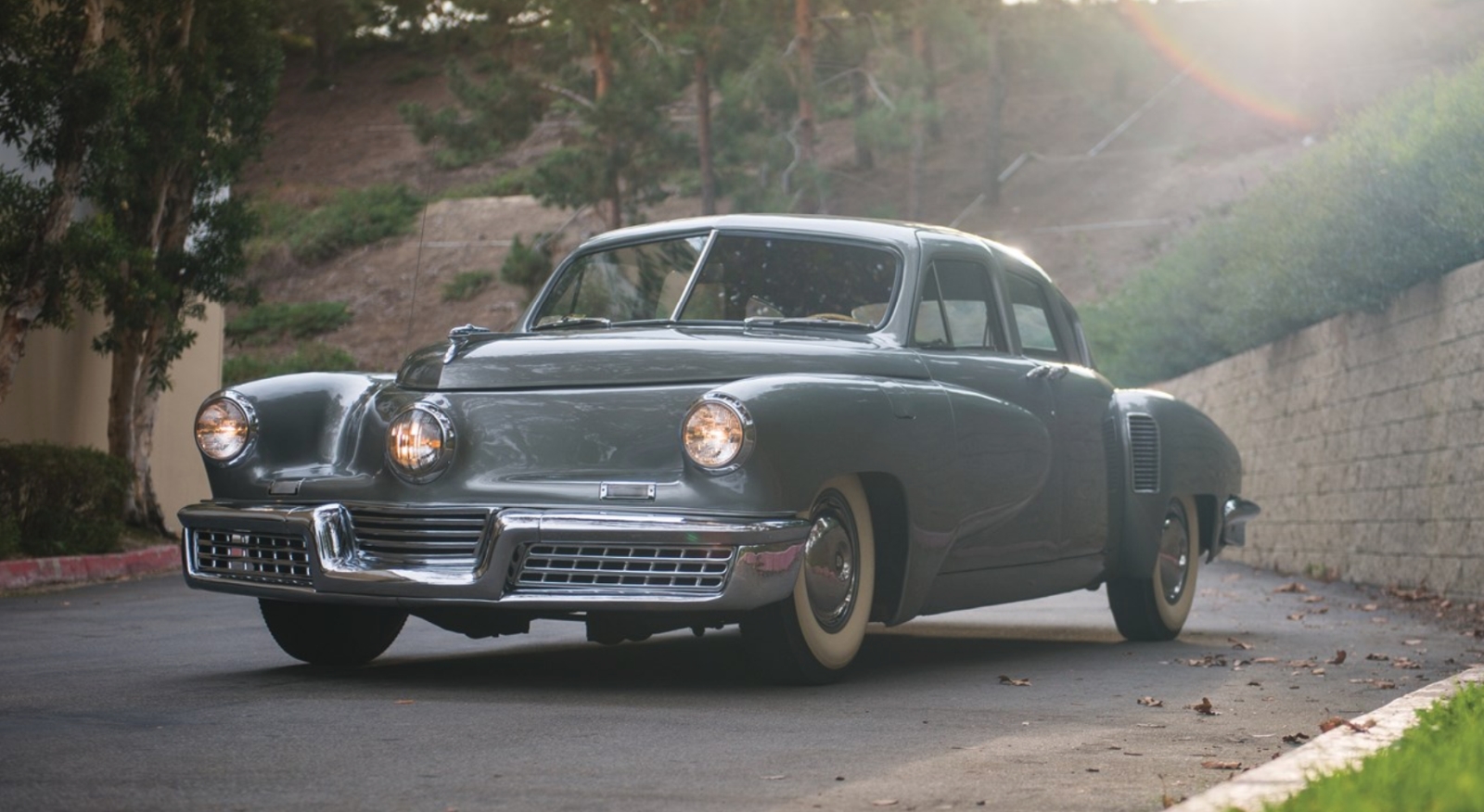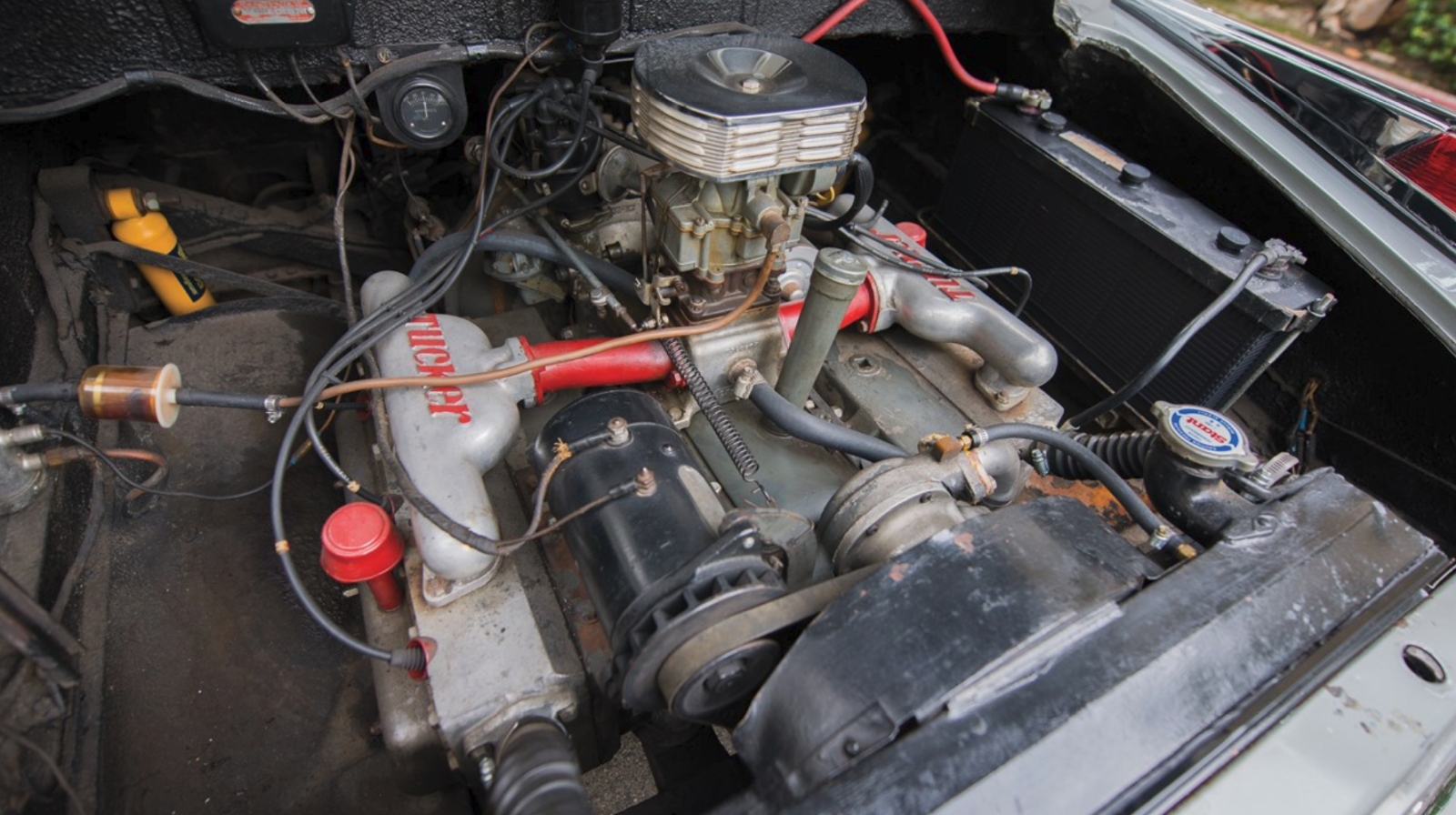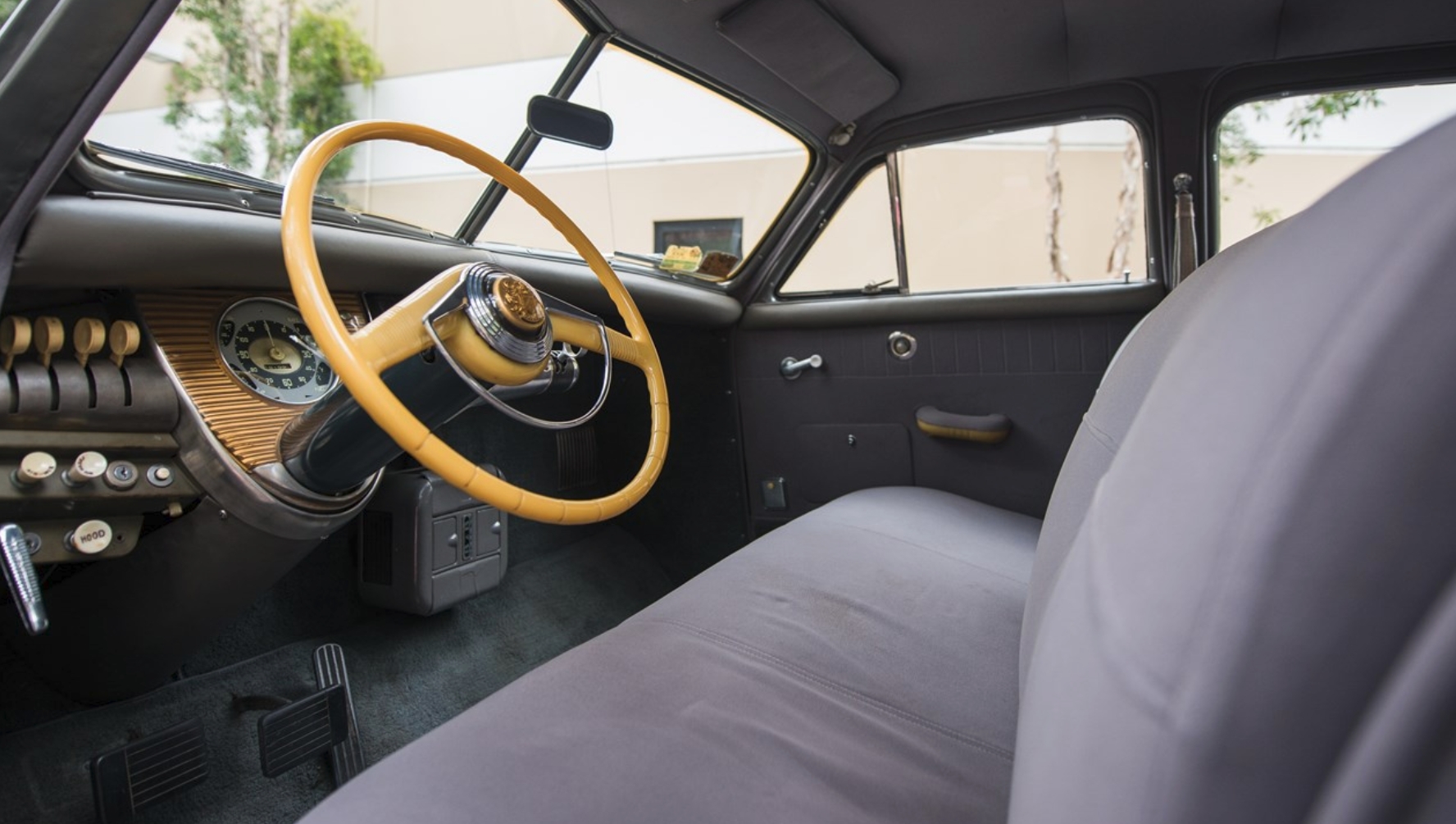
Amid stagnant lineups from the Big Three, which provided great opportunity for smaller carmakers to take some of the limelight, Preston Tucker founded the Tucker Corporation in 1944. Prior to going defunct, Tucker produced one model to compete with Detroit’s automotive strongholds. Known as the “48,” named after its introductory year of 1948, only 51 made it through production before Tucker Corporation ceased operations in 1949.
Because of their rarity, original Tucker 48s (a few replicas do exist) are considered quite the automotive gold in the world of classic and vintage automobiles. When a 1948 Tucker aired on NBC’s It’s Worth What? in 2011, it was said to be valued at $1.2 million. Now, world-renowned auction house RM Sotheby’s just announced that a new Tucker 48 will cross its block at Arizona’s auction later this year under lot number 137. Except, lot number 137 isn’t just one of the 51 Tucker 48s made. It’s a Tucker 48, once personally owned and used by Preston himself.
As the story goes for Tucker 48 production number 1029, this specific car was used in the original promotional film The Tucker: The Man and the Car to advertise the vehicle in the fall of 1948. It then served as a test mule for high-speed test runs at the Indianapolis Motor Speedway. Upon retirement from that role, Preston took ownership of number 1029, where him and his family used it as primary transportation for seven years.
Since then, it changed hands numerous times, particularly through some of the world’s most renowned collectors. One such collector was Winthrop Rockefeller, the would-be Governor of Arkansas in 1955 and family member of the esteemed American industrial tycoon, who purchased number 1029 from Preston that year.
Fast-forward to today, and RM Sotheby’s estimates Tucker 48 number 1029 could fetch anywhere between $1.25 million to $1.5 million when the hammer closes the bidding sessions. It includes all original documentation of previous ownerships, along with mileage and service logs that authentically prove its mileage of only 19,199 on the odometer. Over its history, the paint’s been refinished and its interior, reupholstered.
It’s no $38 million 1962 Ferrari 250 GTO from the Pebble Beach auction of 2014. But any car that fetches as much as a house and beyond is still impressive, to say the least.
Tucker shares its startup story with other small-time successes, like Studebaker, who took advantage of the Big Three’s dip in success for not producing new car designs since 1941. Though unlike Studebaker, who took a more conservative approach to designing some of the first all-new, post-war automobiles, Tucker went for a more innovative and revolutionary approach. Preston Tucker insisted on producing a new car with modern styling and a focus on innovative features. For instance, he specified that his new car must have a water-cooled aluminum block fuel-injected, flat-six engine mounted aft ward like in a Volkswagen Beetle, four-wheel disc brakes, and four-wheel independent suspension, and a driver-centric interior dashboard design.
Shady politics and startup woes, however, severely hindered Tucker from keeping his new corporation from kicking off on time and in order. Inconsistent scrutiny and pressure from the Securities and Exchange Commission forced Preston Tucker into a corner, delaying much of the progresses needed to kick off production of his Tucker 48. From these delays, also came production and development setbacks. When the car first debuted, the media harshly criticized some of the original Tucker 48 prototypes for malfunctioning when instead, they were just incomplete.
Additionally, due to the pressure from the SEC and indictments from what were later found to be unsubstantiated and false allegations, more negative press gathered. And despite a full acquittal, the damage had been done and Tucker Corporation closed its doors.






